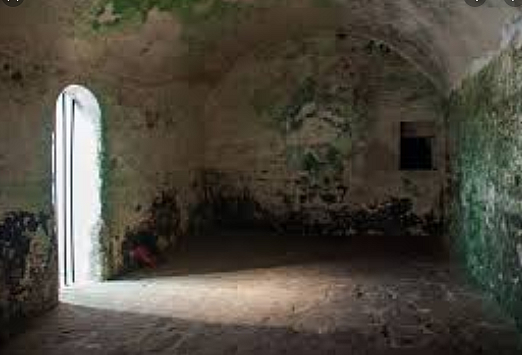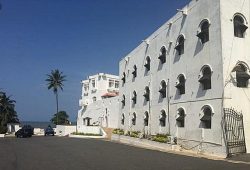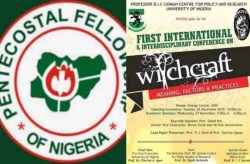The trans-Atlantic slave trade in the fifteenth to the nineteenth century was begun by the Portuguese when they took slaves from Africa to work in Brazil. Slavery had existed already in Africa. The church and the state were seen directly and indirectly to be partners in the trans-Atlantic trade. Both enacted laws to support each other. The state relied on the Judaeo-Christian scriptures and ecclesial pronouncements as an impetus to the trade. Some used Leviticus 25:46 in which the Israelites could buy and keep slaves and the fact that the apostles never asked for the emancipation of slaves to justify the trade. They found the trade as something that was divinely prescribed in the sacred scriptures.

Pope Nicholas V issued the bull Dum Diversas in 1452 allowing the Portuguese to make slaves. Some felt that the slave trade was necessary for the existence of the state. Some missionaries, monks, and nuns indulged in the trade. Slave raiders brought along their chaplains to the castles to minister to them. These chaplains witnessed the atrocities that were meted out to the slaves before they were taken to the Americas. The monasteries and the nunneries treated their slaves with justice and humanity but tried in vain to convince other slave owners to do the same. The church regarded Sundays as a free day of resting for the slaves to care for their spiritual welfare, whereas the governments insisted that the slave owners must take their slaves to catechism and church.
The slave trade in Africa was supported by factors from home and abroad. On the part of the slave masters, there was the need to have slaves to work on the tobacco and sugar plantations in the Americas. The West African kingdom of Ghana had already traded in slaves before it fell to the Muslims in the eleventh century. The market for slaves did not cease with the intervention of the Muslims but increased in numbers into the twelfth century. In other West African countries like Ghana, there were purchased slaves, war captives and hardened criminals who were subjected to various forms of servitude. African rulers and raiders found the slave trade business very lucrative and brought captives from the hinterland to the coast to be exchanged for goods like textiles, tobacco, and gunpowder.
In the colonisation of Virginia in North America by the British in the sixteenth and seventeenth centuries, the Church of England did little in terms of the conversion of the slaves since there were “ancient principles prohibiting Christians from holding fellow believers in slavery.” To avoid such situations, the slave owners did not want their slaves baptised, which eventually led the church to enact a law in 1667, declaring that baptism did not change the status of a slave. This law did not make much impact on the conversion of the slaves. Some denominations remained indecisive on the issue.
Though slavery was the order of the day during the colonial times, with political institutions harbouring and participating in it, slavery bordered the conscience of many. The decision to abolish slavery had always been met with both agreement and disagreement. Previously, before the trans-Atlantic trade began, St Anselm (1033-1109) who was an archbishop of Canterbury, had tried to suppress slavery. Some thought it was inhuman to have slaves and to be slaves, whilst others felt it was normal and natural to be a slave and to own a slave.
This debate lingered on among the state and the church. Some began to deliberate on the issue of whether being a slave and owning a slave was morally wrong or not. Pope Paul III issued Sublimis Deus in 1537, declaring that all peoples are human beings and have the right to their freedom and must not be enslaved.1 This bull met the dissatisfaction of Emperor Charles V of the Roman Empire at the time and he called for its cancellation.
 Priests who preached boldly against the practice were reported to the authorities. In a similar vein, Pope Urban VIII’s pronouncement against slavery in 1639 was met with opposition by the Portuguese government. Back at the place of departure, there were attempts to end the lucrative business but the efforts were met with opposition.
Priests who preached boldly against the practice were reported to the authorities. In a similar vein, Pope Urban VIII’s pronouncement against slavery in 1639 was met with opposition by the Portuguese government. Back at the place of departure, there were attempts to end the lucrative business but the efforts were met with opposition.
Some African traditional rulers who objected to it and wanted to stop it could not attain any success. Affonso I of Kongo (1456-1543), who was tutored by the Portuguese missionaries, came to the awareness that slave trade was evil and intended abolishing it, however, the trade became more lucrative to such an extent that more Portuguese, as well as some local chiefs, took part in the trade. Some of the local chiefs in Senegal protested against the attempt of Almamy of the Futa Toro (late 1700s) to abolish the trade. Some chiefs sold slaves in order not to starve their people.
In the wake of the independence of the United States of America in 1776, there was agitation for the end of slavery in the new nation that was met with opposition. Some denominations began to take measures against slavery, with the Quakers expelling from their midst those who insisted on holding slaves in 1776, and the American Methodists and the Baptists banning slaveholding among their members.
This decision of these denominations was not strictly adhered to over time, since around 1843 some ministers and preachers owned slaves. Some denominations remained indecisive on the issue to end slavery. The General Assembly of the Presbyterian Church in 1818, for instance, declared that slavery was against the law of God, but opposed its abolition. The Catholic Jesuits did not tolerate slavery and did not want slaves in their settlements.
The Americans were divided on the issue of the abolition of slavery. Those in the south were of the view that slavery was sanctioned by God and it gave the African slaves the advantage of being removed from their pagan and uncivilised environment and “given the advantages of the gospel.” However, the abolitionist movements in the north advocated that slavery was not following the will of God.
 The irony is that in the north, slavery was becoming less lucrative and less economically viable, whereas the south depended so much on slave labour. The economic advantages of slavery for those in the south accounted for their stance for the practice of slavery to the extent of seeing it as being willed by God.
The irony is that in the north, slavery was becoming less lucrative and less economically viable, whereas the south depended so much on slave labour. The economic advantages of slavery for those in the south accounted for their stance for the practice of slavery to the extent of seeing it as being willed by God.
Although the church was a partner in the trans-Atlantic slave trade, Christian denominations created the awareness of its atrocities to humanity. Deciding to end the slave trade in the United States of America became very controversial for the Christian denominations to such an extent that, apart from the Catholics and the Episcopalians, most other denominations suffered schism. Concern for the needy and the zeal of the British Christian denominations such as the Anglicans, Quakers and the Methodists to evangelise and to get rid of the evils in the society was to be instrumental in putting an end to the slave trade in Britain and its colonies in the nineteenth century.
The movement to ban slavery in the British colony and to ensure social justice was initiated by individual Christians from the evangelical revival with prominent men like Grenville Sharp and . Grenville Sharp sought to impress on the courts to set slaves who entered the country to be set free. William Wilberforce, the English Christian evangelical parliamentarian, influenced the British government in 1807 to enact laws that ended the slave trade in 1833.








